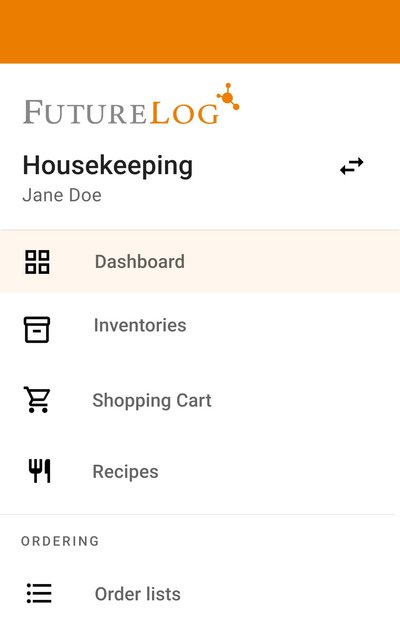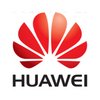
5 Hospitality Procurement Trends to Watch in 2024 and Beyond
The new economic reality is informing how hoteliers plan and execute purchasing in 2024 - but what do investments in digital procurement innovation look like in this “new normal” ? Discover the top 5 procurement megatrends shaping hospitality industry strategy.
The Hospitality Supply Chain
Volatile prices, extended lead terms for goods and services, and keeping up with guest preferences are just a few challenges that continue to impact hotel supply chains years into pandemic recovery. For leading hoteliers, investing in digital procurement innovation is crucial to addressing these concerns — not just as a way to bounce back from COVID-19 but as a lasting component of business growth, resilience, and prosperity for the hotel industry.

Procurement: The New Normal
But what do these “new normal” procurement investments look like? Here are five megatrends transforming the procurement process in the hospitality industry in 2024 and beyond.
1. Guest demand for sustainable practices
The first trend that procurement teams can expect in 2024 is an increased emphasis on sustainability. Sustainability has been a growing concern for businesses in recent years, and it is only going to become more critical as we move forward.
According to Google Insights, over half of travellers now consider sustainability when planning trips. Booking.com also found that nearly three out of four guests intend to make more environmentally conscious travel choices, while a recent survey cited a growing percentage of guests are willing to pay significantly more per night —up to 75% more in some cases.
This current demand for environmentally conscious hotels among hotel guests and travelers is driven by a desire to support sustainable practices, minimize environmental impact, and align with personal values. This demand is not limited to a specific demographic and is expected to continue growing in the future. Hoteliers need to respond to this demand by implementing sustainable sourcing practices, and FutureLog plays a crucial role in facilitating this transition by delivering products that its hotels are happy to work with and that create value in their organisation.
Through this approach, hotels can leverage their procurement strategy to reduce the environmental impact of their operations.
2. Supply Chain Resilience
Successful hotels must be able to withstand supply chain disruptions with a proactive procurement strategy and contingency plan. This ensures that your hotel maintains necessary supplies — and, with them, a consistent level of customer service. It will also save you time and money when finding supply chain workarounds. Your procurement team can establish a more resilient supply chain by:
- Local sourcing. Prioritising nearby suppliers simplifies supply chain logistics, reduces lead times and costs, and is more flexible in the event of a disruption.
- Diversifying suppliers. Developing relationships with a variety of suppliers can help reduce risk, providing more options when your go-to suppliers face delays or material shortages.
- Evaluating supplier risk. Are your hotel’s suppliers in a sound financial position to meet demand? Are they in an area subject to geopolitical instability? Are they equipped to sustain operations in the event of a natural disaster? Procurement teams must assess potential risks before investing in suppliers.
Additionally, technologies such as artificial intelligence (AI) and blockchain strengthen supply chains by supporting these procurement activities. For example, AI can efficiently gather supplier data to identify more diverse supplier networks while evaluating risk.
3. Supplier Relationship Management
Supplier relationship management (SRM) is a strategic approach to evaluating suppliers and optimising their performance for mutual benefit. According to a survey by APQC, SRM is used by nearly 75% of supply chain professionals to minimise risks, improve customer service and reduce costs.
An effective SRM strategy starts with identifying your most strategic suppliers — those that may have few alternatives and that your hotel relies on to operate. Your procurement team likely has limited resources, so it’s important to prioritise these relationships by engaging with them frequently. You should also consider a more flexible approach to contract management with these suppliers, ensuring that terms are mutually beneficial.
Communicating often with key suppliers and accommodating their needs will enable you to establish strong relationships. In the long term, these connections may allow your hotel to negotiate lower prices and even collaborate to develop unique, competitive customer offerings. Engaged suppliers are also more likely to work closely with you to navigate disruptions.
4. Leveraging People & Technology
To improve procurement strategy and streamline cash flow, it’s time to reframe the people versus software debate. Savvy procurement leaders are finding ways to enhance their workforce through procurement technology that improves business processes. By adopting digital solutions, hotels can automate manual processes, such as inventory management, procurement, and guest services.
The use of e-procurement, a cloud computing technology that digitises and automates procurement, has exploded since the onset of COVID-19. Digital Commerce 360 research estimates that e-procurement sales grew 18% between 2021 and 2022, surpassing USD $1 trillion. In another report, Deloitte also found that high-performing procurement organisations aim to boost their e-procurement adoption by 80% in 2023 to improve operational efficiency.
E-procurement software gives hotels an easy, efficient, and accurate way to manage every step of the procurement process. Typical solutions achieve this by:
- Integrating with your existing software to centralise supplier information and other procurement tasks.
- Centralising and automating time-consuming procurement processes such as vendor research, contract management, and accounts payable.
- Gathering valuable insights, such as price forecasting, inventory levels, and procurement performance metrics.
These features all help your procurement team more effectively evaluate suppliers. By automating tasks such as vendor research, they also identify potential supplier risks more accurately and quickly than manual processes. Additionally, e-procurement makes it easier to keep track of supplier activities and communications, which supports supplier relationship management.
5. The rise of data analytics
In an information age, leveraging data analytics and predictive analytics can provide hoteliers with unparalleled insights into their procurement operations. Data analytics can help identify trends, patterns, and anomalies in procurement data, enabling organisations to make data-driven decisions and optimise their procurement processes.
Predictive analytics, on the other hand, can forecast future demand, identify potential risks, and optimize inventory levels. Personalisation is also a significant trend in hospitality procurement. Hotels are increasingly tailoring their procurement strategies to meet the specific needs and preferences of their guests. This involves understanding guest preferences through data analysis and sourcing products and services that align with those preferences. By personalizing their procurement processes, hotels can enhance guest satisfaction and loyalty.
By harnessing the power of data analytics and predictive analytics, hospitality organisations can enhance their procurement strategies and drive better business outcomes.
The Future of Hotel Procurement is Digital
The use of technology in procurement has been on the rise for several years, and we can expect this trend to continue through 2024. The hotel industry is at a pivotal moment, with procurement innovation emerging as a key driver for future growth and resilience.
These key trends represent a holistic approach to procurement that not only addresses the current market challenges but also positions hotels to thrive, catering to the evolving demands of eco-conscious travelers, economic fluctuations, and leveraging technology to streamline operations and foster strong supplier relationships.
Takeaways
If you’re considering an e-procurement investment, look for solutions that are built specifically for the hotel industry. FutureLog stands out as a comprehensive solution tailored specifically to the unique needs of the hospitality industry. Our platform combines cutting-edge technology with user-friendly interfaces, ensuring that hoteliers can easily manage their procurement processes from start to finish. With features like automated vendor management, real-time tracking of orders, and integrated reporting tools, hotels can save time, reduce errors, and make more informed purchasing decisions.
Moreover, FutureLog's robust analytics and reporting capabilities provide valuable insights into spending patterns, helping hotels optimise their procurement strategies and ultimately boost their bottom line. By leveraging FutureLog's innovative platform, hotels can not only streamline their procurement operations but also gain a competitive edge in the ever-evolving hospitality landscape.

Future-Focused Improvements
Get in touch
If your hotel is ready to make future-focused improvements to ensure stability through 2024 and beyond, get in touch with our dedicated team for a commitment-free demo on how FutureLog can support you with your digital procurement transformation.
OUR APP: Procure-to-pay while on the go!
From placing orders and managing recipes to approving invoices and viewing reports, with FutureLog’s native mobile app you’ll have all the power and automation of our P2P web solutions conveniently at your fingertips. Whether you’re online or offline, you can stay in control.



